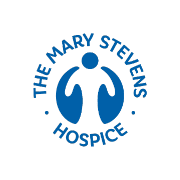‘It’s more than rainbows in receptions’
The Marie Curie Research Impact Fund has awarded the Mary Stevens Hospice funding to improve equity in palliative care for LGBTQ+ people.
It is recognised that lesbian, gay, bisexual, transgender, queer and other gender diverse (LGBTQ+) people experience inequity in access to healthcare due to discrimination, assumptions made by healthcare professionals and LGBTQ+ people anticipating discriminatory behaviour. Therefore, early and effective advance care planning discussion is unlikely to happen for many people from the LGBTQ+ community.
The Marie Curie Research Impact Fund will be used to develop a co-production advisory group, facilitation of No Barriers Here advance care planning workshops and explore the experiences of death, dying and bereavement for LGBTQ+ people. It is a methodology previously developed and used with marginalised populations and can help dismantle barriers, enable advance care planning and increase knowledge and awareness for health care professionals.

Gemma Allen, Palliative Care Inclusion and Community Partnerships Lead at The Mary Stevens Hospice, said:
“We are delighted to have been awarded funding from the Marie Curie Research Impact Fund. Funding projects that are focussed on equity informed palliative care is vital to help us better understand and provide the best possible palliative and end of life care to people in our community.”
This project aims to actively engage and understand the barriers and experiences of the LGBTQ+ community in accessing palliative and end of life care, explore how care could be improved and to support members of the community to understand their own end of life and wider care needs better. In the current political and social climate, LGBTQ+ people’s rights and liberties have been under attack. It is important that healthcare providers offer safe and competent care, beyond displaying rainbows and attending Pride. Proper understanding of the needs, experiences and hopes of LGBTQ+ people and communities is needed, and theNo Barriers Here model provides an approach that is grounded in coproduction, telling stories and sharing experiences and improving care through supporting healthcare professionals listen more closely to previously dismissed or silenced voices.

